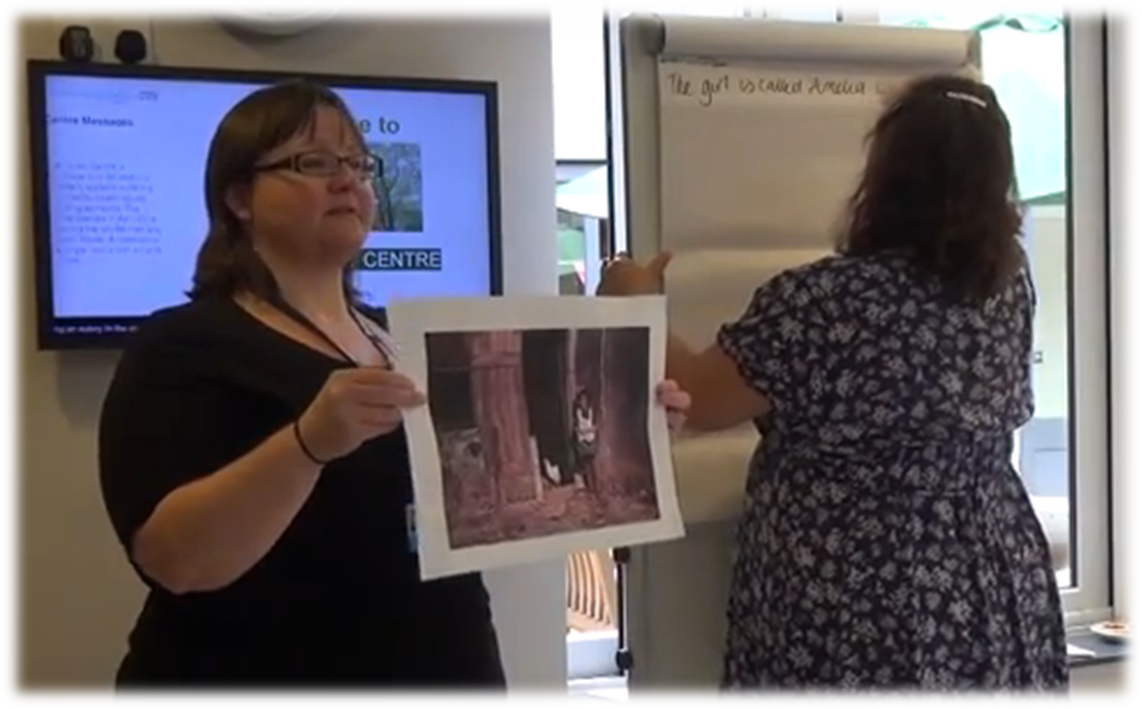Storytelling with University researcher helps dementia patients turn a new page
Date 14.02.2018
14.02.2018
Northamptonshire people who have been diagnosed with dementia have benefitted from a University researcher’s use of an innovative group storytelling to support wellbeing.
Researcher Alison Ward has been volunteering each month at the Forest Centre at St Mary’s Hospital in Kettering conducting storytelling classes for people with dementia using the TimeSlips method.
TimeSlips is creative storytelling approach using an image and open questions. The storytellers (the patients) then respond, building up a group story.
This reduces the pressure on people to remember, giving them the freedom to use their imaginations rather than relying on the written word.
Being interested in Timeslips and wanting to develop her skills, Alison trained to become a certified facilitator and began volunteering with the Forest Centre in 2015.
Feedback from Alison’s group has been uniformly positive, with storyteller’s memory recall improved as they remember sessions from week to week and help health and social care staff to better connect with their patients.
The number of people with a diagnosis of dementia increases year on year and in Northamptonshire it is expected that 12,000 people will be living with a diagnosis of dementia by 2025.
Alison works on various dementia research projects at the University of Northampton, including the Dementia Friendly Organisation award launched last month in which local businesses can win an intern to turn their businesses around and recognise the needs of people with dementia.
Alison, whose storytelling work has been featured in an official NHS document about people who help ‘Make a Difference’ at Northamptonshire Foundation Trust, said: “Often we forget that a person diagnosed with dementia still has a story to tell and that they are able to be creative, share their wisdom and experiences and have fun.
“The positive impact of these storytelling sessions has been noted right from the start, either from the pride the storytellers have in telling their families, their improved memory or helping staff to see them as wise and imaginative humans and not just patients. It’s been wonderful to bring out these other qualities in people with dementia.”